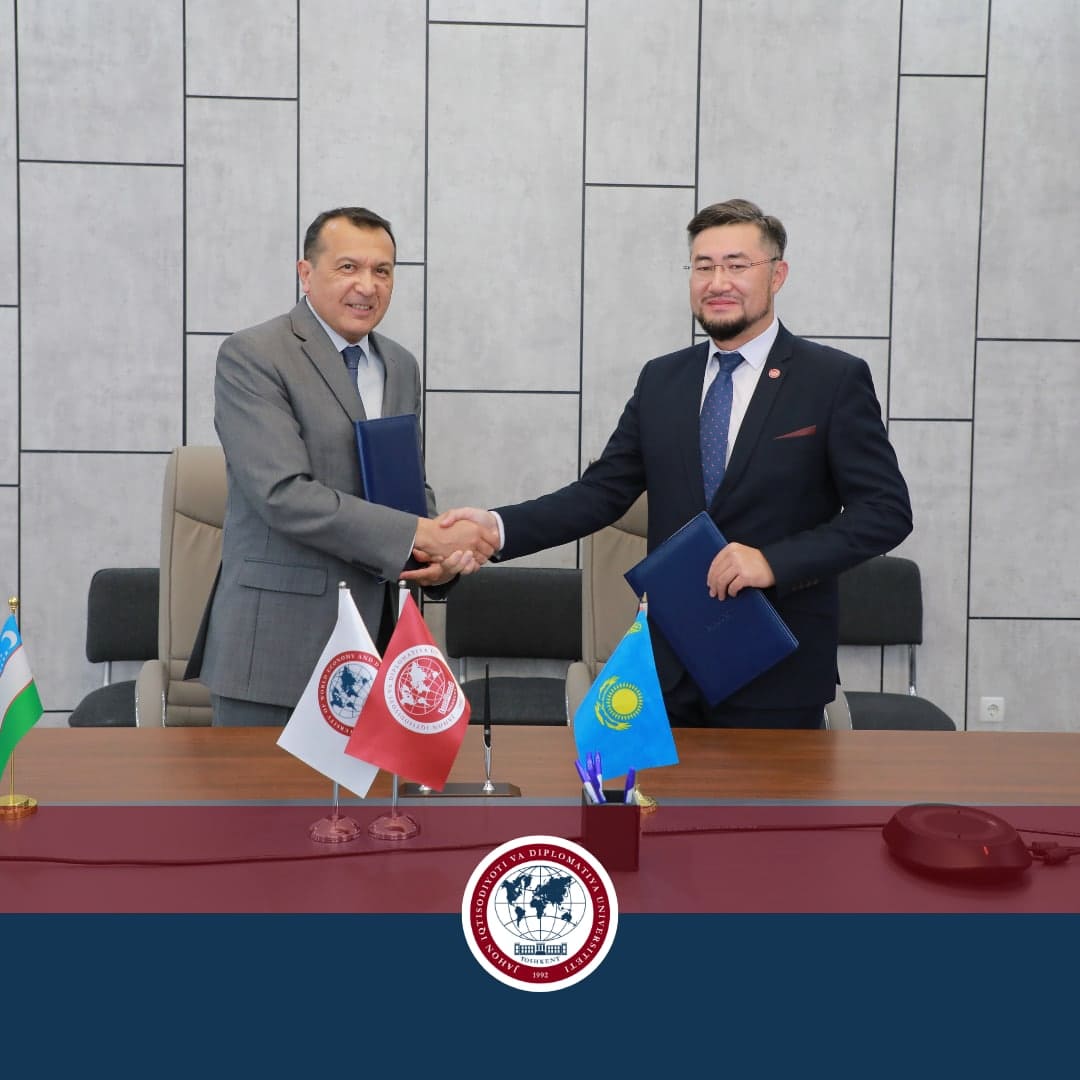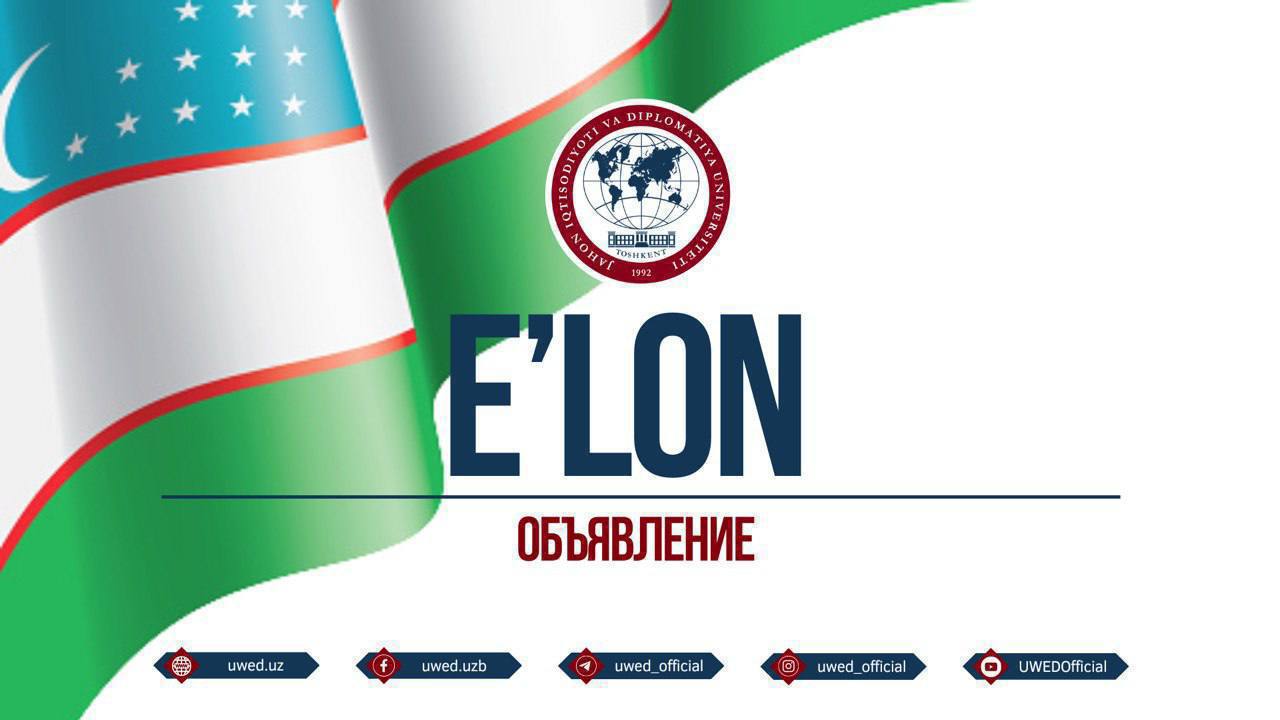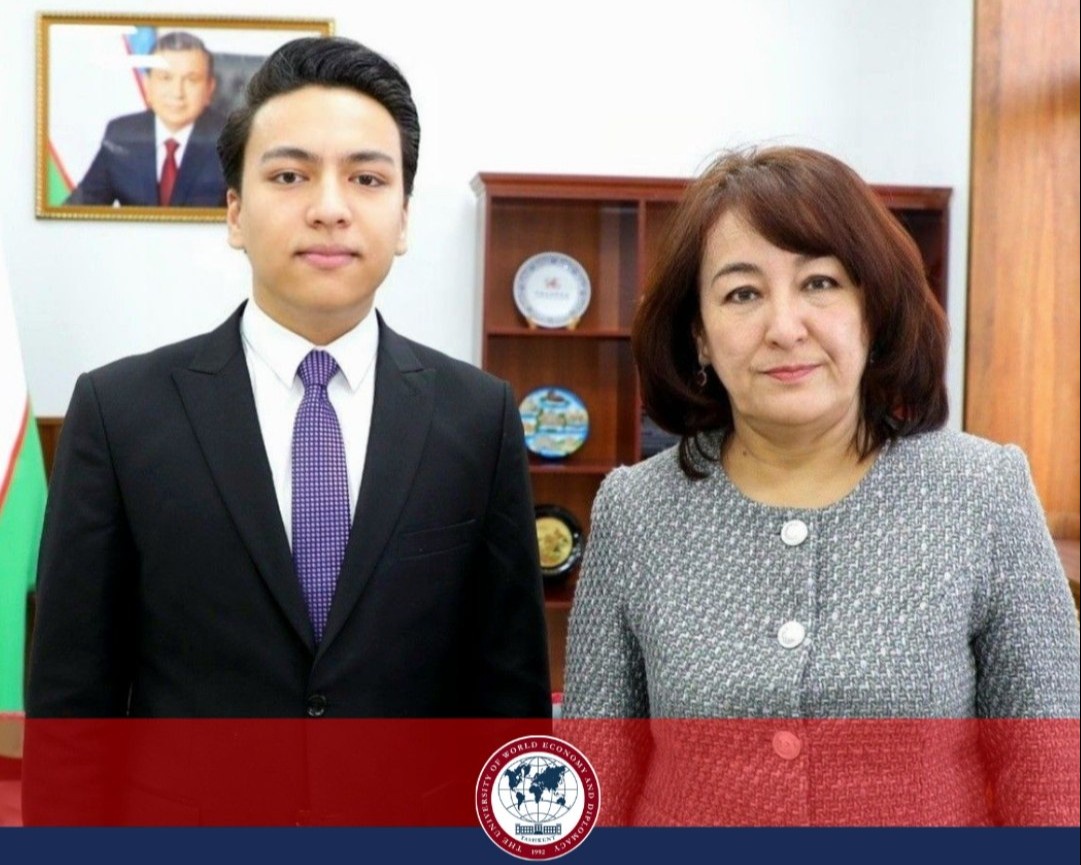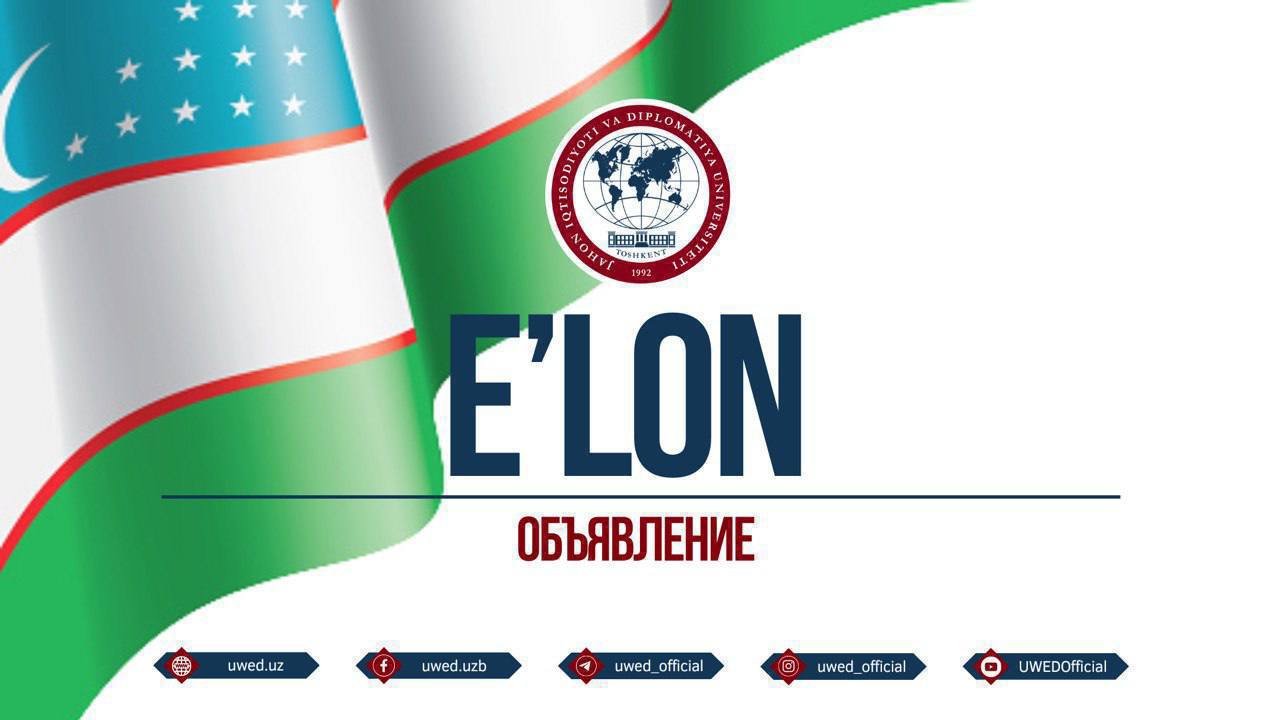
An international conference dedicated to the sustainable development of Central Asia was held at the University of World Economy and Diplomacy
An international conference dedicated to the sustainable development of Central Asia was held at the University of World Economy and Diplomacy
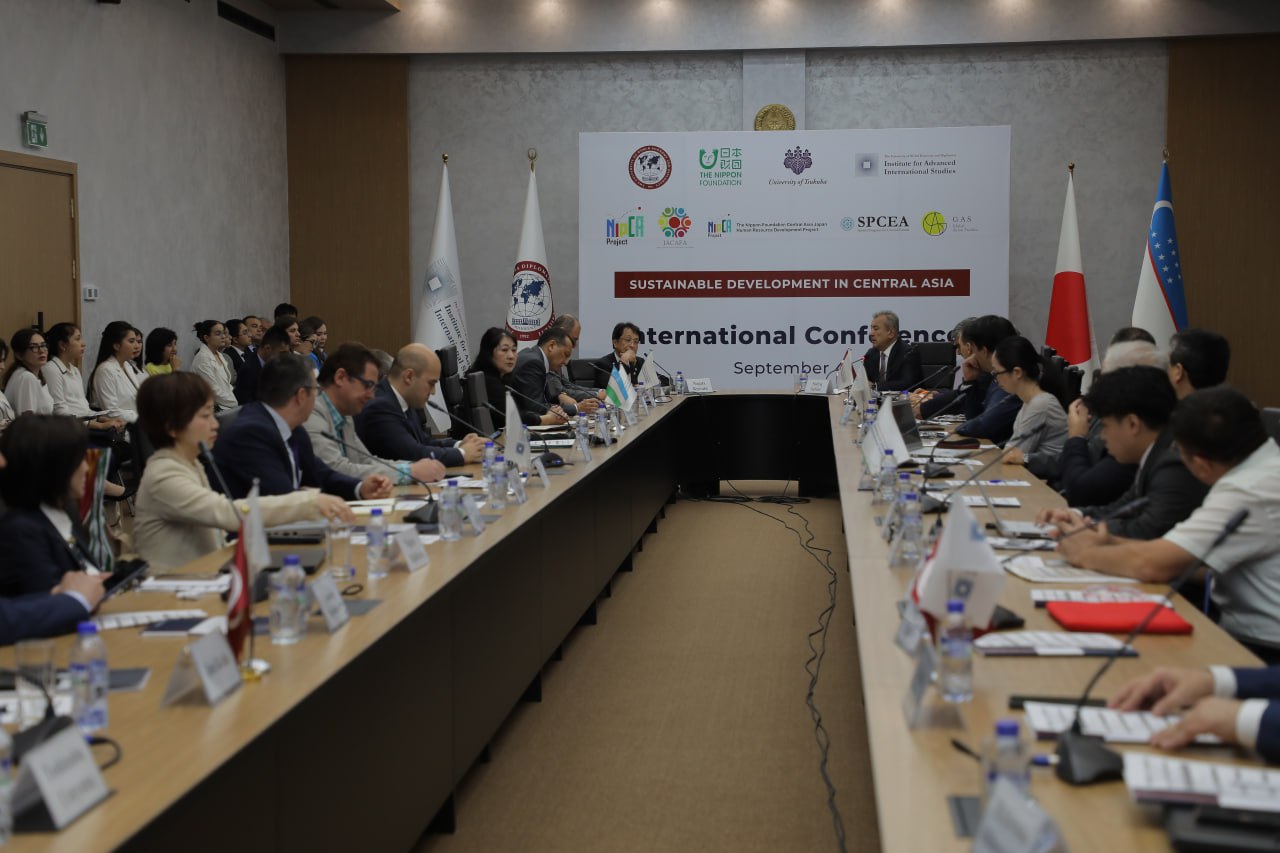
On September 4, this year the International Conference “Sustainable Development in Central Asia” was held at the University of World Economy and Diplomacy.
It was attended by scientists and representatives of higher educational institutions from the UK, Kazakhstan, Sweden and Japan, as well as faculty and students of UWED.
The First Deputy Chairman of the Senate of the Oliy Majlis, Rector of the UWED Sodyq Safoev, Ambassador of Japan to Uzbekistan Hatori Takashi, President of the University of Tsukuba Nagata Kyosuke and Executive Director of the Nippon Mori Yuji Foundation delivered a welcoming speech.
In his opening speech, S. Safoev noted that turning Central Asia into a region of stability and sustainable development meets the national interests of Uzbekistan, contributing to solving the problems of ordinary people who want cooperation and trade. The foreign policy of Uzbekistan remains unchanged: first, to strengthen positive trends in deepening relations with our immediate neighbors and traditional partners. It was stressed that the region had reached an irreversible level of consolidation over the past six years. Particular attention should be paid to the further intensification of joint efforts to establish peace and stability in Afghanistan.
The conference was divided into five panel discussions on the topics of Eurasia's Contemporary Challenges: Resilience Building and Development, Decolonization, Sustainability Issues, Education and Migration.
As part of the discussion of the various challenges of Eurasia in the context of development, the speakers emphasized that Central Asia faces serious challenges in terms of sustainable development in the areas of water supply, energy, climate change, transport and logistics remoteness, as well as in the fight against international terrorism, religious extremism, illegal drug trafficking, illegal immigration, criminal cross-border organizations and cyber threats. Prospects for sustainable development in Central Asia are linked to the establishment of peace in neighboring Afghanistan.
In this regard, views were expressed on the need to intensify and strengthen multifaceted cooperation between the states of Central Asia in a comprehensive response to these challenges in order to ensure economic and social progress, maintain peace, stability and security in the region.
Regarding education, the participants agreed that its level in Central Asia may vary depending on the specific country and region. However, in general, the level of education in the countries of Central Asia is somewhat lower than in developed countries. According to a 2018 World Bank report, the literacy rate in Central Asian countries is about 98% for men and about 95% for women. However, these figures may vary from country to country.
Some Central Asian countries, such as Kazakhstan and Uzbekistan, have well-developed education systems with high access to quality educational institutions and training programs. However, in other countries, such as Tajikistan and Kyrgyzstan, the level of education may be lower due to various factors such as economic hardship, lack of funding, and limited access to education. In general, the level of education in Central Asia is the subject of active efforts by governments and international organizations to improve the availability and quality of education in the region.
The participants noted that the problems of migration in Central Asia are complex and diverse. Among its main reasons were economic instability and lack of jobs, when people are forced to look for employment opportunities outside their countries.
Also, Central Asia faces the problem of illegal migration and transit migrants. Some people try to find better opportunities in other countries by using illegal means of crossing the border or by becoming victims of human trafficking.
Migration also affects the educational system in the region. Many children of migrants do not have access to education or face difficulties in obtaining a quality education. This can lead to inequality in educational opportunities and negatively affect the development of the region.
In this context, the solution to this problem could be to improve the economic situation to create new jobs in the region, implement policies aimed at protecting the rights of migrants and preventing illegal migration, and provide access to quality education for all children, including children of migrants.
| Date: | 04.09.2023 |
| Views: | 1521 |
| Share: |
